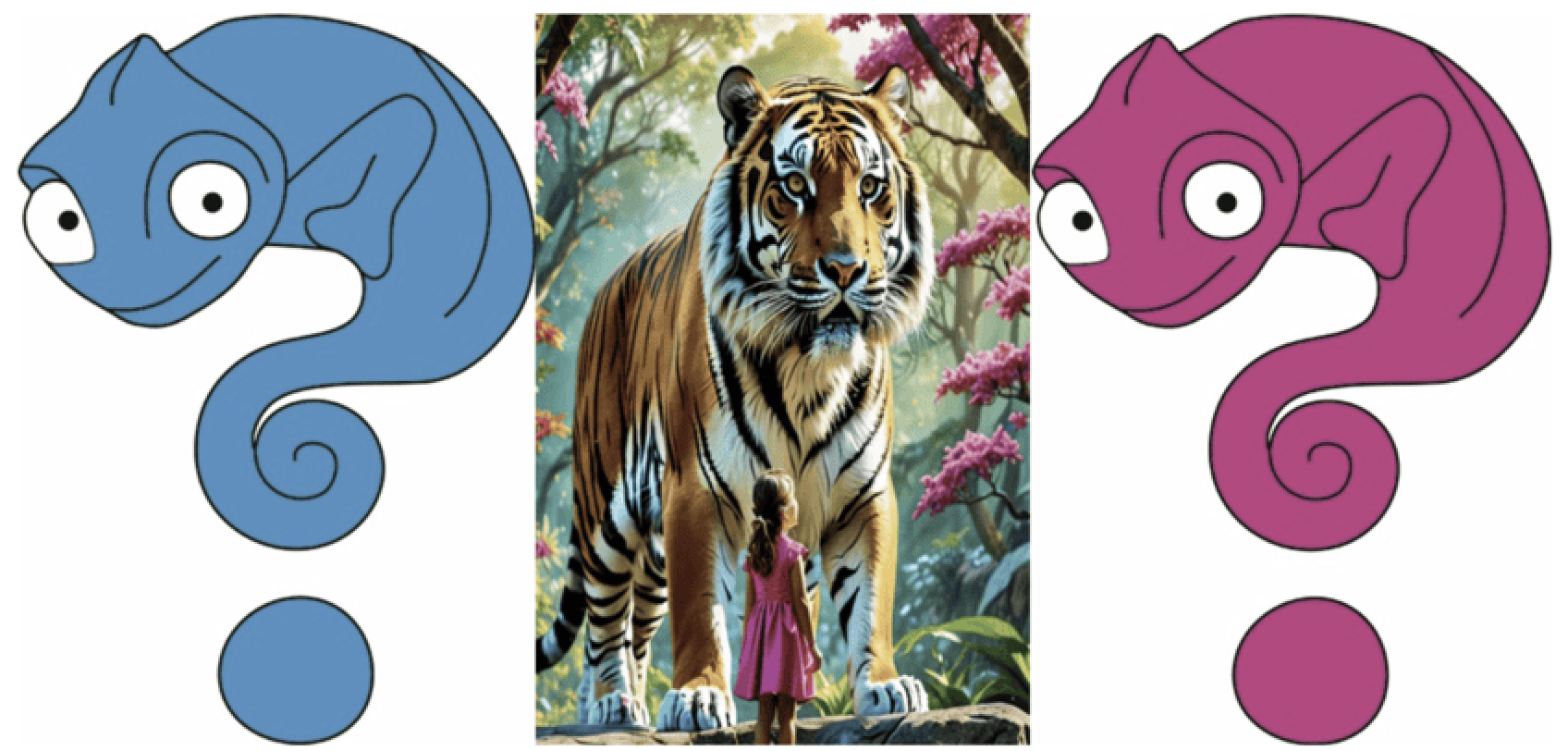Myth 10: “Chameleons Don’t Need to Fear Us—We’re the Good Guys!”

Reality: To a chameleon, you are a skyscraper-sized predator with teeth, claws, and a history of primate aggression. You are not the hero of this story.
Imagine this: You're a chameleon basking peacefully on a branch. Suddenly, a 7-meter-tall creature with forward-facing eyes, gleaming teeth, and flailing limbs looms over you. It talks (loudly), moves (erratically), and smells like shampoo, coffee, and existential dread. That's not a friend. That's a 13-elephant-sized tiger with a manicure.
According to the article "Chameleon Panic: Understanding Chameleon's Fear of Humans" by Petr Nečas (2025), this is exactly how chameleons perceive us. We are not benevolent caretakers in their eyes—we are walking nightmares. Our towering size, predatory silhouette, and unpredictable behavior trigger their most primal fear responses. And yet, we persist in believing they "trust" us because they crawl onto our hands. Spoiler: they think we're a tree. A temporary escape route. Not a buddy.
Let's break it down:
We resemble their worst enemies: monkeys, civets, cats. All of which have a long evolutionary history of eating reptiles.
We keep them in cages smaller than their own body length, then wonder why they're stressed.
We shine blinding lights in their eyes, blast them with UV.
We decorate their enclosures like haunted caves.
We talk to them, even though they're deaf. (They don't hear your affirmations. They just see your mouth flapping like a predator's jaw.)
And when they panic—digging, hiding, turning dark, or biting—we call them "moody." In reality, they're screaming in lizard.
The most tragic part? When they go limp in your hand, it's not affection. It's resignation. They've realized they can't escape, so they shut down. That's not bonding. That's trauma.
So no, chameleons don't need to fear us because we're evil. They fear us because we're terrifying. And unless we radically rethink how we house, handle, and interpret them, we'll keep mistaking their survival mechanisms for signs of love.
Want to earn their trust?
Start by respecting their fear. Build enclosures that reflect their natural range. Stop handling them like puppies. And for the love of all things scaly, stop talking to them like they're your therapist.
Because to them, you're not a friend.
You're a skyscraper with teeth.